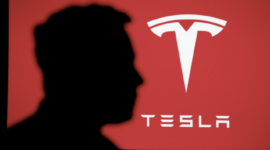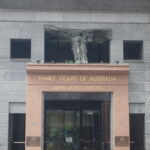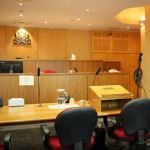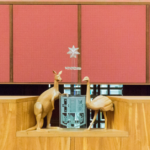Elon Musk Tries To Have NSW Man Arrested For Exposing Tesla Safety Issues

An Australian Federal Court judge has rejected a request by the head of American automative company Tesla, Elon Musk, to have an arrest warrant issued against a man accused of uploading leaked documents by a whistleblower.
Elon Musk is an interesting person, with millions of supporters who have been drawn into believing he actually founded companies like PayPay and Tesla, and who is a visionary.
But the fact of the matter is the richest man in the world got there with misrepresentation, lies and sinister tactics, and has had very little to do with what the marketer and self promoter claims to have achieved, generating his wealth on the ideas and work of others.
He claims to have founded Tesla and been the driving force behind PayPal, but neither of those claims true – with the former being found by two others who in fact had already built an electric vehicle before Musk even came on the scene and his repeated boasts as to inventing the idea of the latter and coding it are also false.
He bought Twitter under the guise of promoting free speech, but was quick to censor the accounts of anyone critical of him or Tesla.
And it may be the case that his public relations team will once again successfully spin his current attack in his favour.
So, what’s it all about this time?
What is the case in the Federal Court?
Tesla is alleging that New South Wales man Keith “Keef” Leech uploaded confidential company documents to the internet, originally leaked by a former worker at Tesla, Lukasz Krupski.
Krupski leaked a trove of over 23,000 internal Tesla documents to the media which he believes reveal real safety concerns with Tesla’s self-driving cars, including major issues like “phantom breaking”, randomly triggered airbags and other threats to public safety. Krupski is currently being sued for breaching company confidentiality in both Norway and the United States.
Subsequently, Tesla has sought legal action against Keith “Keep” Leech in Australia, after he allegedly uploaded some of the whistleblower leaked documents to the internet.
This resulted in a Federal court order (an ‘injunction’) forcing Leech to take the documents down.
Why is Tesla calling for his arrest?
Despite there being a court order in place, Tesla claims that Leech has continued to share links to the leaked documents on social media, amounting to an offence of contempt of court.
The criminal offence of contempt of court involves intentionally engaging in conduct which had the tendency to interfere with or undermine the authority, performance or dignity of the court or those who participate in court proceedings.
Tesla alleges that by refusing to comply with court orders, Leech has likely committed a contempt of court. As such, they requested a warrant be issued for his immediate arrest.
Courts do not always have to issue criminal proceedings when contempt of court is alleged, with a formal warning by the judge often being the initial action to ensure compliance.
There are no maximum penalties for Federal contempt of court charges, and the Court has broad discretion in deciding an appropriate punishment, including the power to fine, imprison, order the sequestration of assets and impose a suspended sentence.
Why did the Court refuse the request?
Federal Court Justice Jonathan Beach refused to issue an arrest warrant against Leech in this matter, reportedly calling the request by Tesla ‘unrealistic’ and a ‘draconian step’
His Honour noted that Tesla had a number of options available to them to have the offending social media posts taken down, including making a formal request to Threads, X and other social media sites to remove the material.
Whilst Beach acknowledge that a prima facie case of contempt of court exists, he noted that the Court would follow its standard processes of issuing criminal proceedings, rather than following an arrest request from Tesla.
An injunction barring Leech from sharing the leaked documents was extended for another 28 days, and the proceedings are set to continue over the following months.






